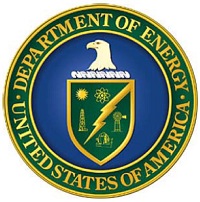![]() A California-based company making biodiesel in India has gained important approvals from the U.S. government and the European Union. This news release from Aemetis, Inc. says the U.S. Environmental Protection Agency (EPA) approved issuance of D4 Renewable Identification Numbers (RINs) for Aemetis’ imported biodiesel produced from waste fats and oils (WFO) at Aemetis’ 50 million gallon per year plant on the East Coast of India, as well as the EU certification.
A California-based company making biodiesel in India has gained important approvals from the U.S. government and the European Union. This news release from Aemetis, Inc. says the U.S. Environmental Protection Agency (EPA) approved issuance of D4 Renewable Identification Numbers (RINs) for Aemetis’ imported biodiesel produced from waste fats and oils (WFO) at Aemetis’ 50 million gallon per year plant on the East Coast of India, as well as the EU certification.
The superior quality and low carbon intensity biodiesel produced at the Aemetis India plant has recently earned [the EU’s] International Sustainability and Carbon Certification (ISCC) Category 2 certification. With the recent construction and commissioning of a biodiesel distillation column at the India plant, the company is producing a colorless biodiesel with 99.5% esters and nearly no monoglycerides, water or other contaminants. Aemetis biodiesel has met and exceeds all D6751 biodiesel specifications, allowing for use in all diesel engines.
“Receiving ISCC Category 2 and EPA certifications are great steps in ramping up India to full capacity with the capability to grow and implement new technologies,” said Eric McAfee, Chairman and CEO of Aemetis. “After the successful installation of the India plant distillation unit, in June Aemetis made its first shipment of Category 2 biodiesel to customers in the E.U.” added McAfee.
Aemetis’ India plant is able to make biodiesel from a wide variety of feedstocks.












